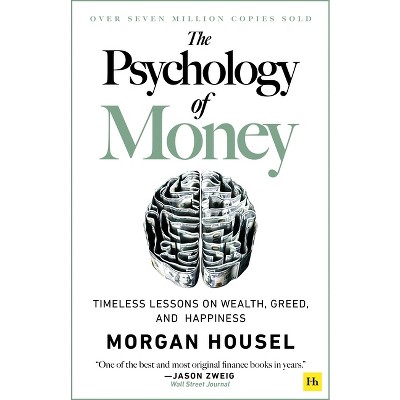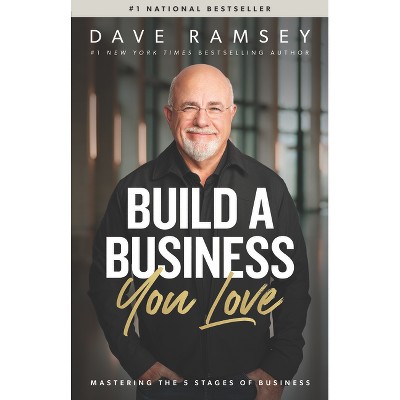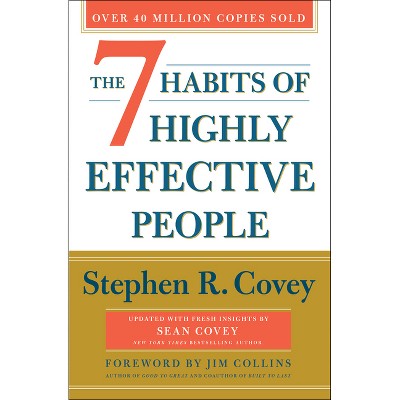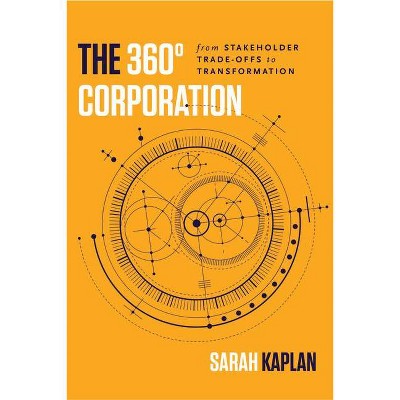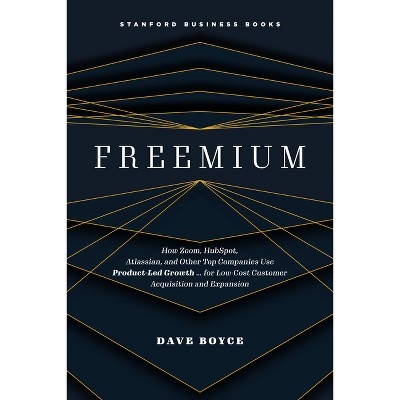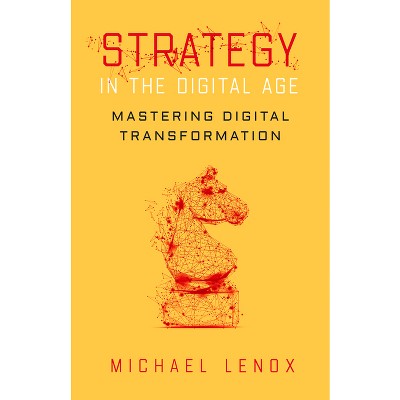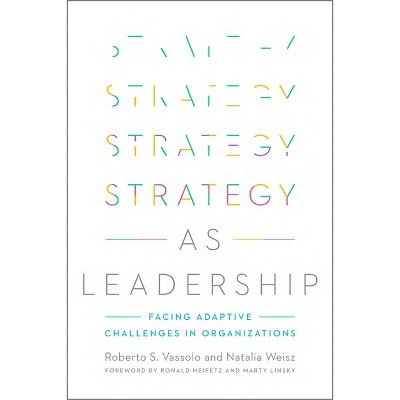Redefining the Corporation - by James E Post & Lee E Preston & Sybille Sachs (Paperback)

About this item
Highlights
- The modern corporation is an institution of enormous economic power and social impact.
- About the Author: James E. Post is Professor of Management at Boston University.
- 376 Pages
- Business + Money Management, Strategic Planning
Description
About the Book
This book shows how the modern corporation must meet the expectations of diverse constiutents who contribute to its existence and success, the stakeholders: resource providers, customers, suppliers, alliance partners, and social and political actors. It argues that the corporation must be seen as an institution engaged in mobilizing resources to create wealth and benefits for all its stakeholders.Book Synopsis
The modern corporation is an institution of enormous economic power and social impact. Corporations have grown in size and numbers all over the world because of their ability to mobilize productive resources and create new wealth. The evolution of the corporation has given rise to new opportunities and challenges that require a redefinition of the corporation and its objectives.
The legitimacy of the corporation as an institution, its "license to operate" within society, depends not only on its success in wealth creation but also on its ability to meet the expectations of diverse constituents who contribute to its existence and success. These constituencies and interests are the corporation's stakeholders-resource providers, customers, suppliers, alliance partners, and social and political actors. Consequently, the corporation must be seen as an institution engaged in mobilizing resources to create wealth and benefits for all its stakeholders.
This book presents a stakeholder view of the corporation in both theoretical and practical terms. Its central proposition is that organizational wealth is created (or destroyed) through a corporation's interactions with its stakeholders. Effective stakeholder management develops and utilizes relationships between a corporation and its stakeholders for mutual benefit, thereby accomplishing the fundamental purpose of wealth creation.
Following the empirical maxim that "Corporations are what they do," the authors examine the stakeholder management practices of three major corporations: Cummins Engine Company, Motorola, and the Royal Dutch/Shell Group. These companies are very different, and their current stakeholder management policies and practices have evolved in very different ways. However, they share a common commitment to humanistic values and to continuous learning. Their varied experiences illustrate some of the opportunities and challenges of stakeholder management, and confirm the appropriateness of the stakeholder view of the corporation as a basis for strategy and policy.
From the Back Cover
The modern corporation is an institution of enormous economic power and social impact. Corporations have grown in size and numbers all over the world because of their ability to mobilize productive resources and create new wealth. The evolution of the corporation has given rise to new opportunities and challenges that require a redefinition of the corporation and its objectives.The legitimacy of the corporation as an institution, its "license to operate" within society, depends not only on its success in wealth creation but also on its ability to meet the expectations of diverse constituents who contribute to its existence and success. These constituencies and interests are the corporation's stakeholders--resource providers, customers, suppliers, alliance partners, and social and political actors. Consequently, the corporation must be seen as an institution engaged in mobilizing resources to create wealth and benefits for all its stakeholders.
This book presents a stakeholder view of the corporation in both theoretical and practical terms. Its central proposition is that organizational wealth is created (or destroyed) through a corporation's interactions with its stakeholders. Effective stakeholder management develops and utilizes relationships between a corporation and its stakeholders for mutual benefit, thereby accomplishing the fundamental purpose of wealth creation.
Following the empirical maxim that "Corporations are what they do," the authors examine the stakeholder management practices of three major corporations: Cummins Engine Company, Motorola, and the Royal Dutch/Shell Group. These companies are very different, and their current stakeholder management policies and practices have evolved in very different ways. However, they share a common commitment to humanistic values and to continuous learning. Their varied experiences illustrate some of the opportunities and challenges of stakeholder management, and confirm the appropriateness of the stakeholder view of the corporation as a basis for strategy and policy.
Review Quotes
"Redefining the Corporation is a seminal contribution to the literature on strategy and governance - one that should be compulsory reading for management, observers, and students. The authors have developed a new, more comprehensive and robust view of corporate purpose and how to achieve it in an increasingly complex, global environment."--Len Brooks, The Clarkson Centre for Business Ethics, Rotman School, University of Toronto
"In a time of fundamental economic and societal change, the stakeholder view - as developed in this book - is the appropriate framework for strategic thinking. Compared with traditional concepts of strategy, the stakeholder view expands on current perspectives of managerial activities that create organizational wealth. Managers, consultants, and academic scholars will benefit from the case studies of three successful world-class firms."--Edwin Rühli, Institut für betriebswirtschaftliche Forschung, der Universität Zürich
"This book is about the survival and development of the business corporation in the 21st Century. The authors have set out to define the stakeholder view of the corporation, and they succeed in showing that the creation of strong and sustainable relationships with employees, customers, and suppliers is necessary for a corporation to create value in the longer term. This book presents a realistic view of stakeholder management and raises some nagging questions about how the modern corporation should distinguish between stakeholders and intruders."--Bernard Taylor, Executive Director, Centre for Board Effectiveness, Henley Management College, England
"Redefining the Corporation is the most creative and pertinent application of stakeholder theory and practice to be published since Freeman's popularization of the concept in 1984. The book bridges theory and practice. It redefines the corporation using the concepts and tools of stakeholder theory and illustrates the relevance of these concepts through the unfolding history, or "stakeholder journey," of three major corporations: Cummins, Motorola, and Shell. It is truly a cutting-edge reference work for the 21st century."--Archie B. Carroll, Terry College of Business, University of Georgia
"A flood of academic research in the past two decades has taken a "stakeholder" perspective. Much of it has been shrouded in academic jargon and focused on parochial academic disputes, and none has been fully integrated with functional aspects of academic management. With this book, Post, Preston, and Sachs have given voice to the stakeholder intuition in a way that both managers and academics can recognize. The authors are highly respected scholars, themselves instrumental in popularizing the stakeholder terminology. When Preston, Post, and Sachs discuss stakeholders, academics listen. With this book, managers can listen as well."--Thomas Donaldson, The Wharton School, University of Pennsylvania
"This is an important book, not only for its abundant empirical evidence gathered from the experiences of Cummins Engine Company, Motorola, and Shell, but also for its insightful theoretical analysis. Written by some of the major scholars in the field, Redefining the Corporation is the thinking person's guide to maintaining corporate vitality while living in a humane community."--Oliver F. Williams, Center for Ethics in Business, University of Notre Dame
"This timely and important book continues the thought leadership of Post, Preston, and Sachs about the role of business in society. Its challenging conclusions are based on close observation of actual business practice in major firms, which should prove extremely valuable for anyone interested in business management or contemporary society. The issues explored are high on the agenda of company boards, investors, and community leaders around the world and will form one of the biggest debates in and between modern corporations and their constituencies in the coming years."--Geoff Allen, Australian Centre for Corporate Public Affaires and Melbourne Business School
About the Author
James E. Post is Professor of Management at Boston University. Lee E. Preston is Professor Emeritus of the Robert H. Smith School of Business, University of Maryland. Sybille Sachs is Associate Professor at the Institute for Research in Business Administration, University of Zurich.Shipping details
Return details
Trending Business & Law Books


